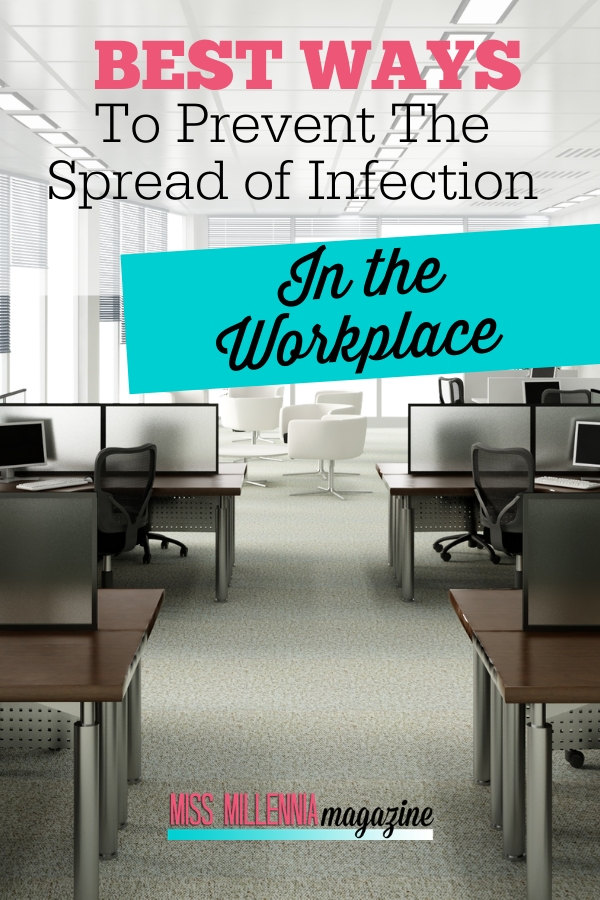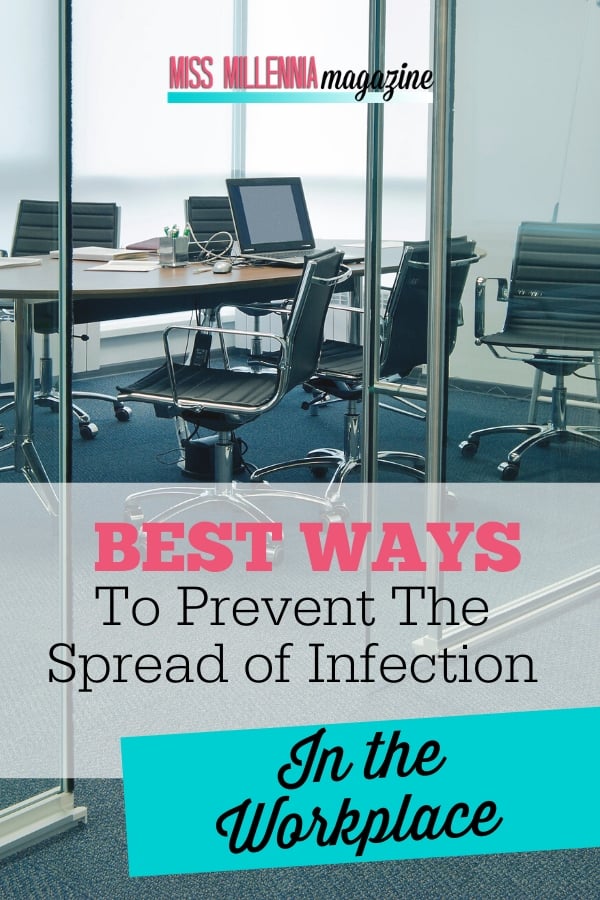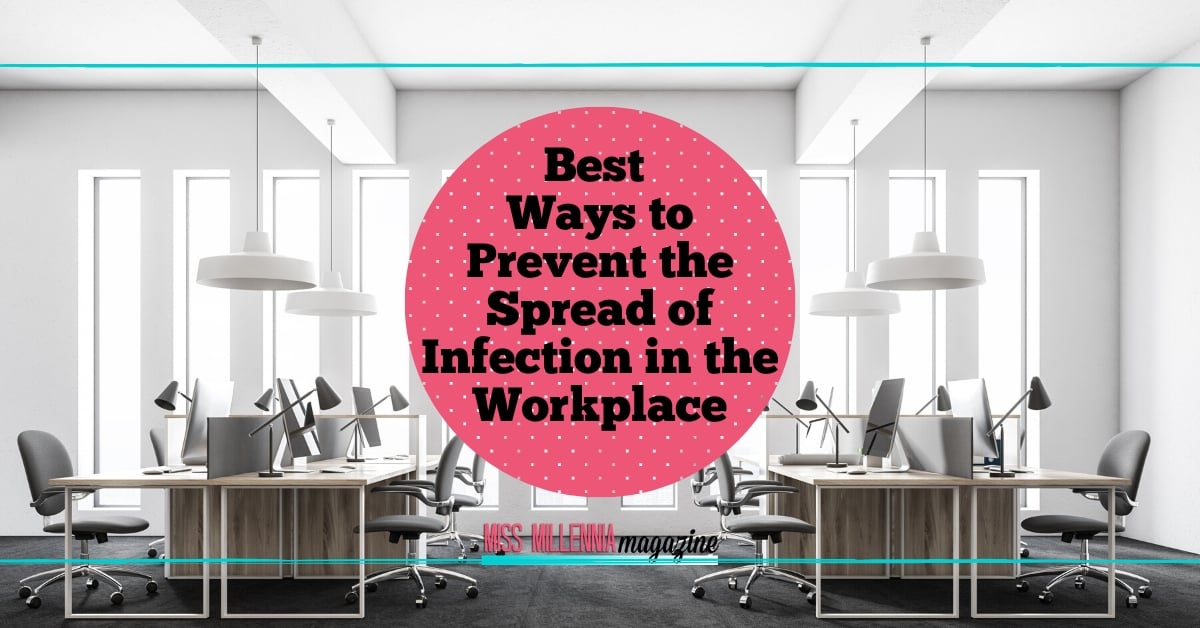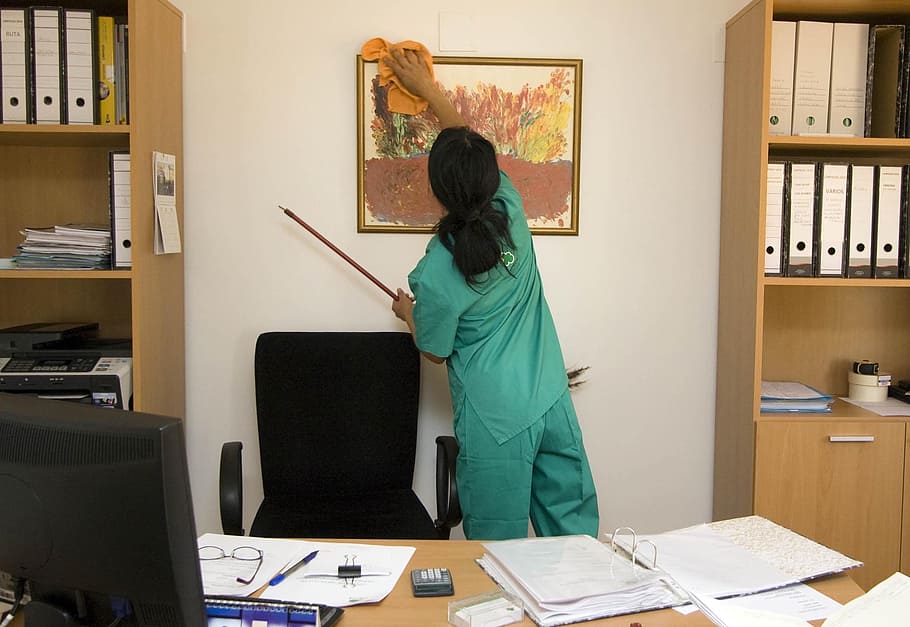Best Ways to Prevent the Spread of Infection in the Workplace
Health in the workplace is a big concern right now, and one that needs to be thoroughly addressed. Unfortunately, you have to consider every employee as a potential health hazard. Have no bias in setting good policies to prevent the spread of infection in the workplace. We share some of the best ways to do this, though remember to always consult the CDC’s Guidelines too.
How Are Infections Spread?
When it comes to preventing the transmission of infections, it is crucial to understand how they are born and spread. A good place to start is to describe what defines an infectious illness.
An infection occurs when organisms such as bacteria, viruses, fungi, and protozoa invade the inside of your body. They will attack your immune system and weaken you as your body attempts to fight off the infection. These organisms, also known as pathogens, can be spread unknowingly and very rapidly, creating a serious threat to those who are in close contact.
Due to the hazardous nature of infections, it is essential to have policies in place to prevent these conditions from ever having a chance to occur.
Cleaning
Infections can be transmitted in several ways. Bacteria and viruses are easily spread through the air and in food. Dirty countertops, microwaves, refrigerators, and anywhere else that food particles may reside are breeding grounds for bacteria.
Have a daily cleaning procedure established to keep work areas and break rooms clean. Make sure to use disinfecting cleaning products to kill off any of the infectious particles that are unseen to the eye. Additionally, you should require every employee to wash their hands frequently with antibacterial soap.
Proper Safety Equipment
Everyone should have the appropriate cleaning and safety equipment, along with training on how and when to use them. Safety equipment may include rubber gloves, eye protection, face masks, and proper working attire. These items should be readily available and part of regular, everyday procedures when working in dirty conditions.
Restaurants need to have the strictest and most extensive list of these rules when it comes to cleaning procedures. To prevent airborne risks, make sure to have rooms well ventilated and fresh air supplied to closed, tight spaces.
Immunization
When hiring new employees, it is important to know their current health status. Certain vaccinations should be required for employees, depending on your work environment. For example, if the working conditions put the person at risk of getting injured from a cut or scrape, a tetanus shot should be provided.
Sick Leave Policies
Having a supportive and equitable sick leave policy is one of the best ways to prevent the spread of infection in the workplace. When a worker is infected with something like the flu or pink eye, they should be required to leave the office until the infection is gone. Requiring them to work will only put others at risk, and viruses are very easily spread.
We are in constant contact with one another. Even if we’re not in direct contact, merely touching the same doorknob or keyboard means bacteria can pass to many people before any signs of sickness. Employers should respect this threat and be willing to send employees home when infectious diseases can be spread to others.
The best way to prevent the spread of infection is to have daily tasks and responsibilities in place to ensure a safe working environment. Use the proper safety equipment, and require personnel to adhere to the policies is key to keeping infections in check.
Practice Social Distancing
Don’t forget that right now, one of the best ways to prevent the spread of infection is to practice social distancing. Only leave your home for absolutely essential tasks, and try to limit even that as much as possible. For example, your workplace should allow you to work from home unless you have an essential job, such as a grocery store employee. When you do go out, stay at least six feet away from others and follow CDC’s Guidelines, including the ones listed above.
We are all in a new and unfamiliar situation, and it’s necessary to do all we can to take care of ourselves and each other. Adhere to the best practices listed above, and do anything else you can to prevent transmitting illness.
Check out our COVID-19 recommendations page for more ways to help yourself out during this stressful time. We’re here for you!











